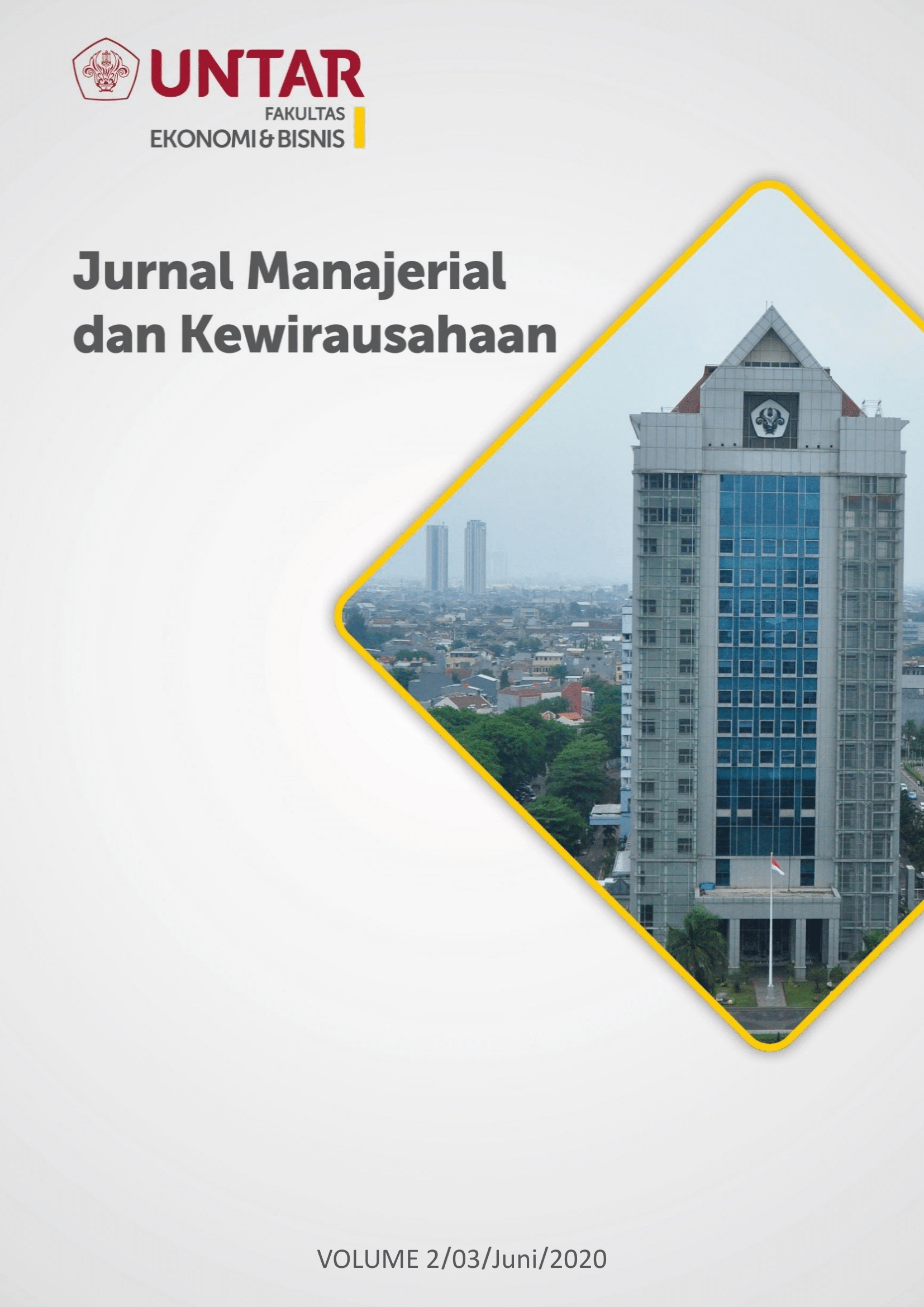Peranan Meaning of Work Memediasi Hubungan antara Dukungan Organisasi dan Kreativitas Karyawan
Main Article Content
Abstract
This study investigates the effects of perceived organizational support (POS) on meaning of work and employee creativity on PT. CIPTAHUTAMA JAYA. Data was collected through a survey of 100 employees, and structural equational model (SEM) was used to test the research hypotheses. The results indicate that POS have positive effects on the meaning of work and employee creativity. While the mediating effect of meaning of work on the relationship between POS and employee creativity is only partially supported.
Penelitian ini menginvestigasi efek dari dukungan organisasi terhadap makna kerja dan kreativitas karyawan pada PT. CIPTAHUTAMAJAYA. Data yang telah terkumpul berasal dari survey terhadap 100 karyawan perusahaan. Structural Equation Model digunakan untuk menguji hipotesis dari penelitian ini. hasilnya menunjukan bahwa dukungan organisasi memiliki efek positif terhadap makna kerja dan kreativitas karyawan. Sementara itu efek mediasi dari makna kerja terhadap hubungan antara dukungan organisasi dan kreativitas karyawan hanya didukung sebagian.
Article Details
Section
This work is licensed under a Jurnal Muara Ilmu Ekonomi dan Bisnis Creative Commons Attribution-ShareAlike 4.0 International License.,/p>
References
Akgunduz, Y., Alkan, C., & Gök, Ö. A. (2018). Perceived organizational support, employee creativity and proactive personality: The mediating effect of meaning of work. Journal of Hospitality and Tourism Management, 34, 105-114.
Akgunduz, Y., Kizilcalioglu, G., & Sanli, S. C. (2018). The effects of job satisfaction and meaning of work on employee creativity: An investigation of EXPO 2016 exhibition employees. Turizam: me?unarodni znanstveno-stru?ni ?asopis, 66(2), 130-147.
Blau, P. M. (1964). Social exchange theory. Retrieved September, 3(2007), 62.
Cohen-Meitar, R., Carmeli, A., & Waldman, D. A. (2009). Linking meaningfulness in the workplace to employee creativity: The intervening role of organizational identification and positive psychological experiences. Creativity Research Journal, 21(4), 361-375.
Eisenberger, R., Huntington, R., Hutchison, S., & Sowa, D. (1986). Perceived organizational support. Journal of Applied psychology, 71(3), 500.
Erdogan, B., & Enders, J. (2007). Support from the top: Supervisors' perceived organizational support as a moderator of leader-member exchange to satisfaction and performance relationships. Journal of applied psychology, 92(2), 321.
Gaggiotti, H. (2006). Going from Spain and Latin America to Central Asia: decision making of expatriation and meaning of work. The Central Asia Business Journal, 1(1), 8-22.
Gong, Y., Huang, J. C., & Farh, J. L. (2009). Employee learning orientation, transformational leadership, and employee creativity: The mediating role of employee creative self-efficacy. Academy of management Journal, 52(4), 765-778.
Harpaz, I., & Fu, X. (2002). The structure of the meaning of work: A relative stability amidst change. Human relations, 55(6), 639-667.
Joo, B. K., Yang, B., & McLean, G. N. (2014). Employee creativity: The effects of perceived learning culture, leader–member exchange quality, job autonomy, and proactivity. Human Resource Development International, 17(3), 297-317.
Mondy, R. W., & Martocchio, J. J. (2016). Human Resource Management (Fourteenth). England: Pearson Education Limited.
Scott, S. G. & Bruce, R. A. (1994). Determinants of innovative behavior: A path model of individual innovation in the workplace. Academy of Management Journal, 37(3), 580-607.
Shalley, C. E., Zhou, J., & Oldham, G. R. (2004). The effects of personal and contextual characteristics on creativity: Where should we go from here? Journal of management, 30(6), 933-958.
Shin, S. J., Kim, T. Y., Lee, J. Y., & Bian, L. (2012). Cognitive team diversity and individual team member creativity: A cross-level interaction. Academy of Management Journal, 55(1), 197-212.
Wang, Z., & Xu, H. (2019). When and for whom ethical leadership is more effective in eliciting work meaningfulness and positive attitudes: The moderating roles of core self-evaluation and perceived
Yu, C., & Frenkel, S. J. (2013). Explaining task performance and creativity from perceived organizational support theory: Which mechanisms are more important? Journal of Organizational Behavior, 34(8), 1165-1181.
Zhang, L., Bu, Q., & Wee, S. (2016). Effect of perceived organizational support on employee creativity: Moderating role of job stressors. International Journal of Stress Management, 23(4), 400.

